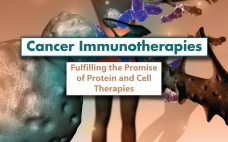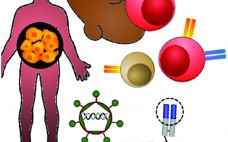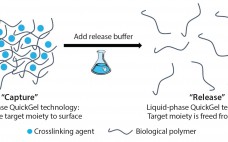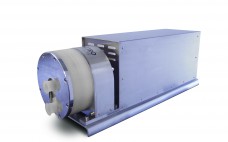BTEC is excited to announce a partnership with BioProcess International (BPI) to conduct a yearlong outreach campaign targeting industry leaders. The partnership will focus attention on the value added by industry-specific education, training, and professional development. Well-designed training programs can reduce human error, drive adoption of emerging technologies, and motivate a technical workforce. This message, understood by organizational development, learning management, and training professionals, will be shared with decision-makers working in operations, process development, engineering, research, and the industry’s large…
Monday, April 18, 2016 Daily Archives
JSR Corporation Establishes JSR Life Sciences Division, Names North American Leader
JSR Corporation today announced the formation and establishment of its Life Sciences Division, JSR Life Sciences (JLS). The newly formed JLS has been established as a business unit for parent company, Tokyo-based JSR Corporation, a company with more than 50 years of success in material and polymer chemistries including marketing latex and magnetic beads to life sciences and diagnostic companies worldwide. Eric R. Johnson will lead the global operation for the Life Sciences business and assume responsibility of all operations…
Factories of the Future: Can Patient-Specific Cell Therapies Get There from Here?
In many ways, patient-specific cell therapies (PSCTs) are still the “new kid on the block” in medicine. Researchers, therapeutic developers, manufacturers, regulators, and payers are still exploring and developing an understanding of the powerful benefits and unique challenges associated with this growing industry. As we all become more familiar with PSCTs, an evolution will need to occur — as it has for automobiles, computers, and every technological advance in human history — for these therapies to become widely adopted, cost-efficient,…
Emerging Platform Bioprocesses for Viral Vectors and Gene Therapies
Recent advances in molecular biology are expediting genomic sequencing to underpin precision medicine. Such progress is positioning gene and gene-modified cell therapy on the cusp of an extraordinary revolution in patient care for presently unmet medical needs — and a new therapeutic class that could rival monoclonal antibodies (MAbs) in importance. However, despite substantial strides made in clinical trials, the bioprocessing community is struggling to fulfill growing demands for biomanufacturing capacity to make gene and gene-modified cell therapies — including…
Cancer Immunotherapies: Fulfilling the Promise of Protein and Cell Therapies
With few exceptions, both small-molecule and biological cancer treatments have contributed only incrementally towards achieving long-term responses or outright cures. In this regard, emerging cell- and protein-based cancer immunotherapies represent game-changing strategies for treating even refractory cancer. With long-term responses now possible, medical science may be on the verge of delivering on the long-unfulfilled promise of making cancer a manageable disease. But impediments to commercializing cancer immunotherapies are substantial. Producing cell-based treatments entails substantial hands-on manipulation and perfecting the logistics…
Automation in Cell Therapy Manufacturing
The concept of automation conjures up images of robots on assembly lines or perhaps automobiles replacing horse-drawn carriages. In both examples, automation provides an ability to work tirelessly, with reproducible high-quality outputs at increased speed. For cell therapy, automation can be used to increase the scale of cell culture operations (e.g., bioreactors replacing flasks) and allow the use of closed systems that can protect cell products from contamination with adventitious agents from the environment or operators themselves. Closed systems also…
Automation of CAR-T Cell Adoptive Immunotherapy Bioprocessing: Technology Opportunities to Debottleneck Manufacturing
Continued clinical efficacy demonstrations of cell-based immunotherapies (iTx) such as chimeric antigen receptor T cell (CAR-T) therapies has made the prospect increasingly likely of an immunotherapy product achieving conditional market authorization in the short term. For example, Novartis and the University of Pennsylvania’s lead candidate (CTL019) for treating a range of hematological malignancies received breakthrough status from the US Food and Drug Administration (FDA) in 2014, permitting access to an expedited drug development pathway for high unmet medical needs (1).…
Development of a Novel Cell-Separation Platform: Discussion with Quad Technologies CEO Sean Kevlahan
Releasing and separating cells from surfaces and capture molecules are critical steps in cell therapy development. Research into such therapies as chimeric antigen receptor T cells (CAR-T) cancer therapies and stem-cell regenerative medicines demand the isolation and purification of viable and functional target cells. A number of cell-separation strategies can be used to produce such cells, but they are not able to deliver the required efficiency or scalability and can also cause damage to cells or affect their phenotype. Since…
Quattroflow™ Introduces QF1200HT Compact Version Quaternary Diaphragm Pump
Quattroflow™, part of PSG®, a Dover company and a leading brand of positive displacement quaternary diaphragm pumps, is pleased to announce that it has answered the needs of labs that have strict space-use requirements with the release of the QF1200HT (Compact Version) Quaternary (Four-Piston) Diaphragm Pump. Available in both Single- and Multiple-Use variations, the new QF1200HT features a high turndown ratio (200:1) and accuracy in controlling flow rates, which makes it ideal for use in a wide variety of biopharmaceutical…
Quattroflow™ Releases QF20kSU Single-Use Quaternary Diaphragm Pump
Quattroflow™, part of PSG®, a Dover company and a leading brand of positive displacement quaternary diaphragm pumps, is pleased to announce the introduction of its QF20kSU Single-Use Quaternary (Four-Piston) Diaphragm Pump. Featuring flow rates from 200 to 16,000 lph (53 to 4,227 gph), the new QF20kSU is an ideal solution for a wide variety of pharmaceutical and biotech applications. QF20kSU pumps feature a replaceable polypropylene (PP) wetted pump chamber that can be easily and quickly replaced as a complete unit…








